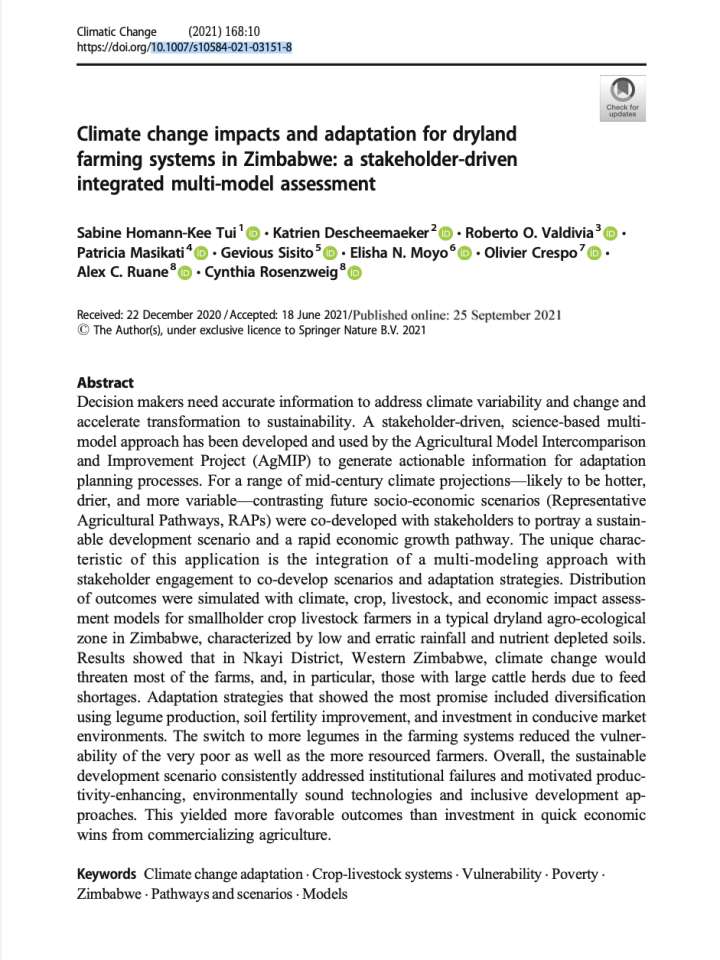Climate change impacts and adaptation for dryland farming systems in Zimbabwe: A stakeholder-driven integrated multi-model assessment
This paper examines a novel Regional Integrated Assessment (RIA) approach that combines multi-model simulations with expert knowledge to characterize the vulnerability to climate change and adaptation impacts in complex smallholder farming systems. Decision makers need accurate information to address climate variability and change and accelerate transformation to sustainability. A stakeholder-driven, science-based multimodel approach has been developed and used by the Agricultural Model Intercomparison and Improvement Project (AgMIP) to generate actionable information for adaptation planning processes. For a range of mid-century climate projections—likely to be hotter, drier, and more variable—contrasting future socio-economic scenarios (Representative Agricultural Pathways, RAPs) were co-developed with stakeholders to portray a sustainable development scenario and a rapid economic growth pathway.
The paper demonstrates that even with climate change, benefits can be reached by addressing the most stringent constraints in the socio-institutional context. By providing concrete messages to policy makers, who often make decisions without a credible evidence base, approaches like this support better-coordinated action and learning for sub-national and national decision and policy making. Use of pathways with integrated modeling approaches like the one presented in this study can bring research closer to influence decision- and policy-making processes, in order to create sustainable futures for smallholders in semi-arid Southern Africa.
Explore further
